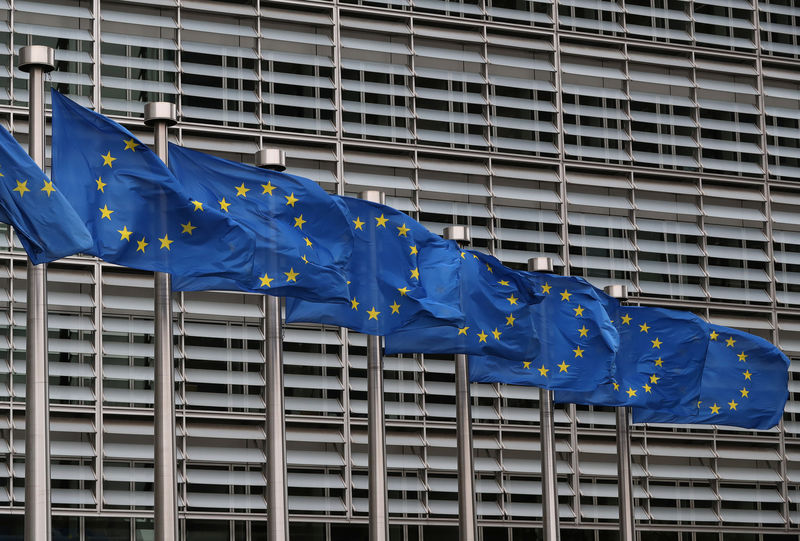By Jan Strupczewski
LUXEMBOURG (Reuters) - European Union finance ministers agreed on a small budget for the euro zone on Thursday, ending two years of talks that exposed their divisions over greater integration after a sovereign debt crisis that nearly destroyed the euro.
The new budget -- the first for the euro zone as a whole -- will provide around 17 billion euros over seven years for the 19 countries using the euro. That leaves it just a shadow of French President Emmanuel Macron's original proposal, which called for a budget of several hundred billion euros.
Macron's version also included assigning dedicated tax revenues to the budget and using it stabilize euro zone economies hit by crises not of their own making.
The idea was supported by the European Central Bank, keen to see a fiscal counterpart to its monetary policy, and by the euro zone bailout fund. The bailout fund argued it made economic sense and could be done without transfers.
But that was too much for many northern countries, led by the Netherlands, and got lukewarm backing from Germany, still coping with a series of bailouts during the sovereign debt crisis and worried it could encourage free-riding and moral hazard.
"Finance Ministers have trimmed down Emmanuel Macron’s megalomaniac ideas for a euro zone budget back to a realistic size," said Markus Ferber, the German Coordinator in the European Parliament’s Economic and Monetary Affairs Committee for the biggest centre-right party, EPP.
"The most important aspect of this new budget line is that there is clear conditionality for each and every euro spent. If the euro zone budget fails to have high access hurdles and a fierce gatekeeper, some member states like France or Italy will certainly try to loot the treasure chamber," Ferber said.
BUDGET MAY GROW IN THE FUTURE
The money for the euro zone budget -- called the Budgetary Instrument for Convergence and Competitiveness, or BICC -- will come from the wider, seven-year EU budget that begins in 2021 and covers all 27 countries that will remain in the EU if Britain leaves.
"We have a new pillar in the foundations supporting the euro," the chairman of the ministers, Mario Centeno, told a news conference.
In another blow to Macron's idea, the BICC will be used only to finance investment and reforms, not to stabilize economies.
But Paris and its allies managed to leave the door open to increase the budget later, through an intergovernmental agreement, with details to be sorted out before 2021.
Some officials, like European Commissioner for Economic and Financial Affairs Pierre Moscovici, see this as a "foot-in-the-door" possibility for the budget to become a more serious economic instrument in the future.
The euro zone budget will mainly redistribute money that governments pay into the EU budget -- each country will get back in the form of financing at least 70% of what it pays in. To get funding for a project linked to investment or reforms, it would have to provide 25% of the money itself.
Ministers agreed that 80% of the money from the budget would be allocated using two criteria -- population and inverse GDP per capita, meaning the less wealthy would get more.
The remaining 20% may be used to react to country-specific challenges by supporting packages of reforms and investments that are "especially ambitious".
During a severe economic downturn, when investment usually is cut first, the contribution of governments to funding projects may be halved.
